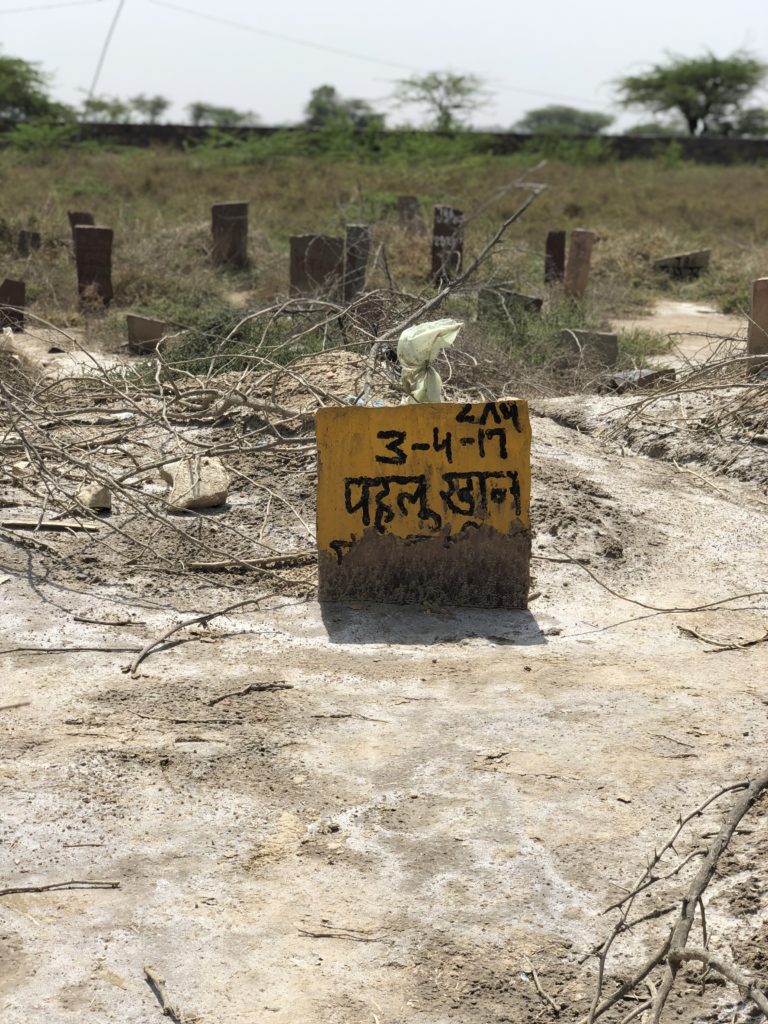Nuh in Haryana is India’s most backward district. It is also where Rakbar Khan and Pehlu Khan were lynched on suspicions of cattle theft. I travel to Nuh to meet their families.

Lying on a string cot beneath a row of pale green prayer beads that hangs from the wall, Asmeena Khan holds up a frail hand and says softly, “Please pray for me.”
There is no electricity and Asmeena cannot summon the strength to wave away the flies that settle on her face. She has been bedridden since being in a car accident four months ago. Her brother says the doctors have said she is paralysed from the waist down, and will never walk again.
Asmeena is the widow of Rakbar Khan, the dairy farmer who was killed by cow vigilantes on the night of July 20, 2018. After the murder of 28-year-old Rakbar, Asmeena, who has never been to school and is unsure even of her age, was left to raise her seven children. The eldest, 14-year-old Saahila, dropped out of school to help her mother with household chores and add to the family income by working as a daily wage labourer; four younger children were enrolled at a residential school in Aligarh run by a charitable society. The youngest two, aged six and three, have stayed with their mother in Tapkan village in Haryana’s Nuh district.
When the accident happened. Asmeena was on her way to visit her children in Aligarh in a taxi. A truck collided with the car she was in. The driver and a 19-year-old niece accompanying Asmeena were killed. Asmeena was first taken to the medical college in Nuh and then referred to a hospital in New Delhi, as her injuries were serious.
Bedridden and bereft
Four months later, she still lies on a cot in her parent’s home. Rakbar’s parents have refused to take her in, says her brother Irfan. But, reasons Asmeena, “Rakbar’s father is an old man who barely makes ends meet by keeping a few goats. Rakbar’s brothers add to his income, but he can barely feed himself.”
Asmeena got married when she was about 13. Three of her brothers work as drivers, two work in a poultry farm, and the youngest has dropped out of school and is learning to repair tyre punctures. Seventeen family members live in the two-room house at Tapkan. Two married sisters are visiting; they have come to find work as daily wage labourers, harvesting the ripened wheat in Nuh’s farms.